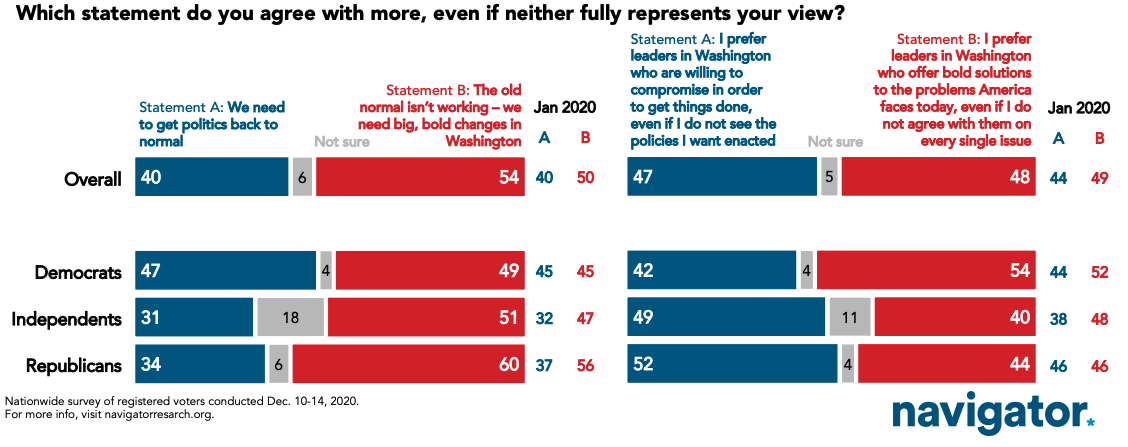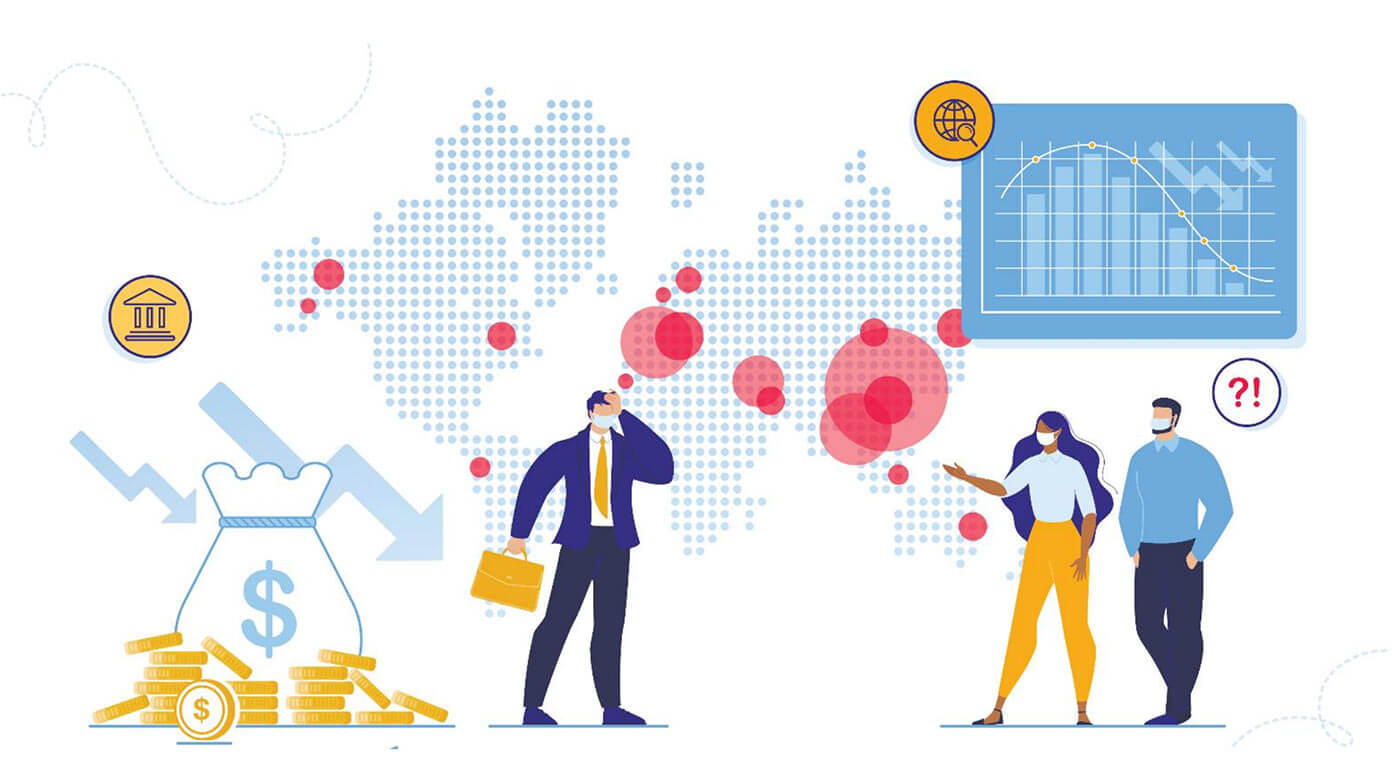Welcome to NAVIGATOR – a project designed to better understand the American public’s views on issues of the day and help advocates, elected officials, and other interested parties understand the language, imagery, and messaging needed to make and win key policy arguments.
This release features findings from a national online survey of 1,003 registered voters conducted December 10-14, 2020. 102 additional interviews were conducted among Hispanic voters and 105 additional interviews were conducted among African American voters.
Key takeaways
- Three in four Americans say the economy is “not so good” or “poor” and a majority are uneasy about their personal finances.
- The public overwhelmingly supports a new round of economic relief and is worried about the lack of help from the federal government for those in need.
- A majority support canceling student loan debt, and the most convincing reasons for canceling student loan debt include economic stimulus and closing the racial wealth gap.
Americans Are Pessimistic About the State of the Economy
Three in four Americans say the economy is currently “not so good” or “poor,” and more than half say the “economy is getting worse.”
- Republicans remain the most optimistic about the state of the economy: 41% say the economy is “excellent” or “good,” and 53% say the economy is either “getting better” or “staying the same.”
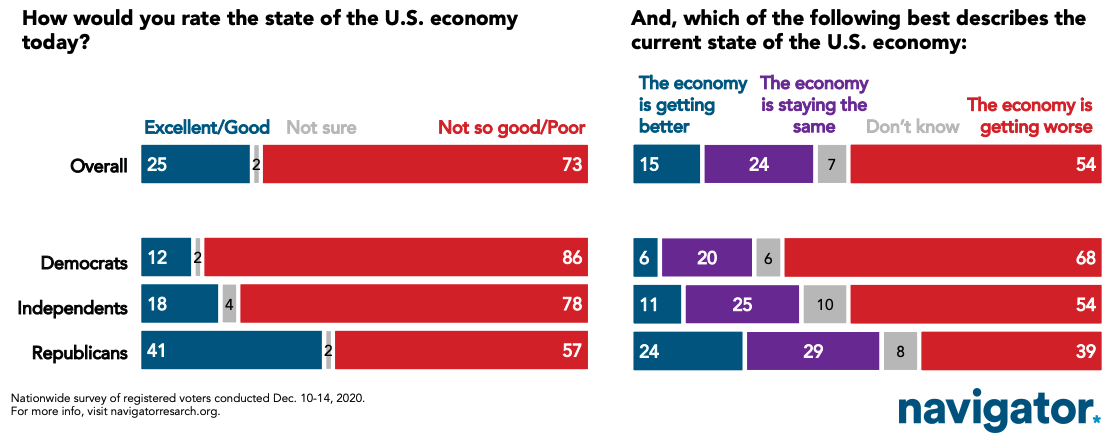
A Majority of Americans Uneasy About Their Personal Finances
Americans have grown 5 points less confident in their personal financial situation since October 12, driven largely by pessimism among Republicans (down to 52% from 62% confident).
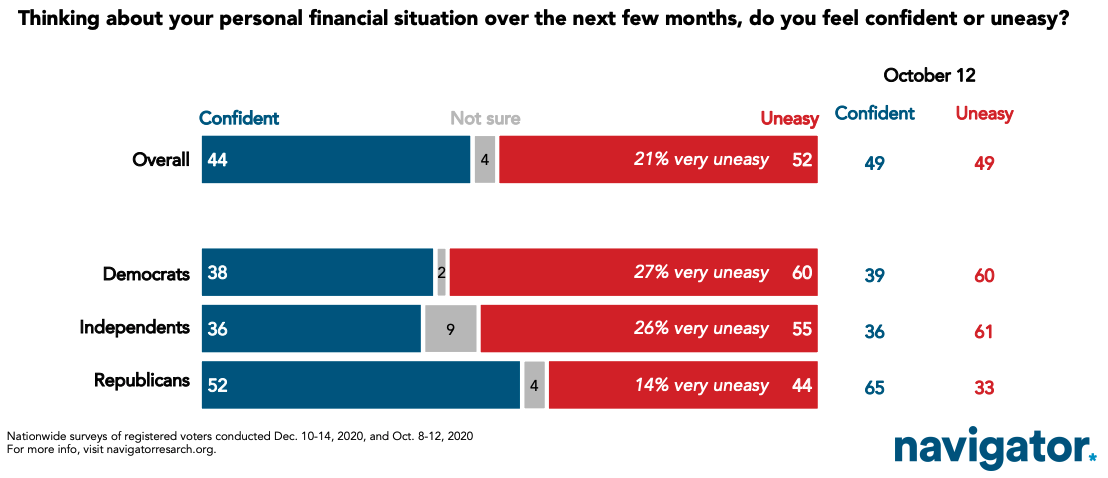
New Economic Relief Enjoys Nearly Unanimous Support
Nearly nine in ten Americans support a new round of economic relief, including three in five who “strongly support.”
- On a separate question, Americans are split on who to blame for lack of relief (41% blame Democrats in Congress, 41% Republicans in Congress). Among those who “strongly support” new relief, 51% blame Republicans for lack of progress on a new round of coronavirus relief, while just 34% blame Democrats.
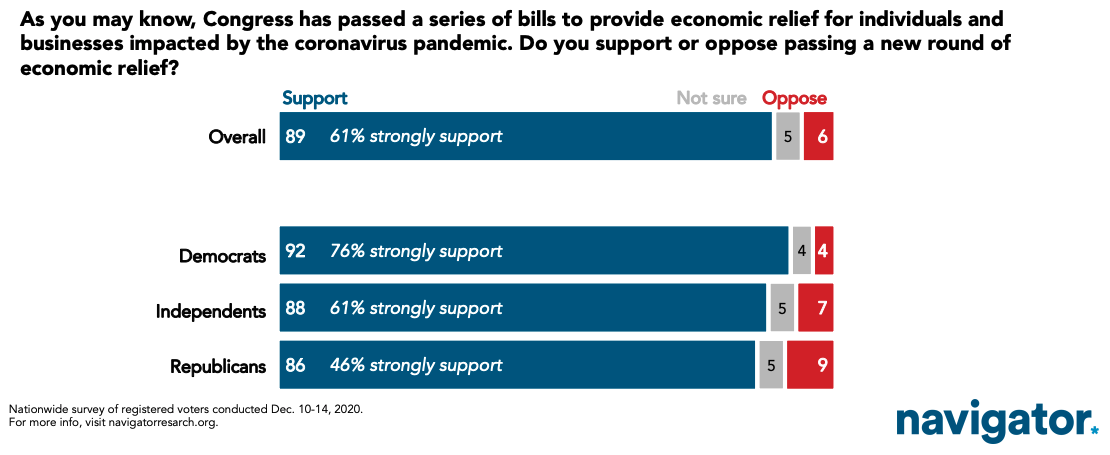
The Economic Impact of the Pandemic and Lack of Federal Aid Are Americans’ Top Worries
While a majority of Americans are worried about a range of issues related to the pandemic, including the economic impact and holiday travel, lack of aid from the federal government is a top worry across party lines.
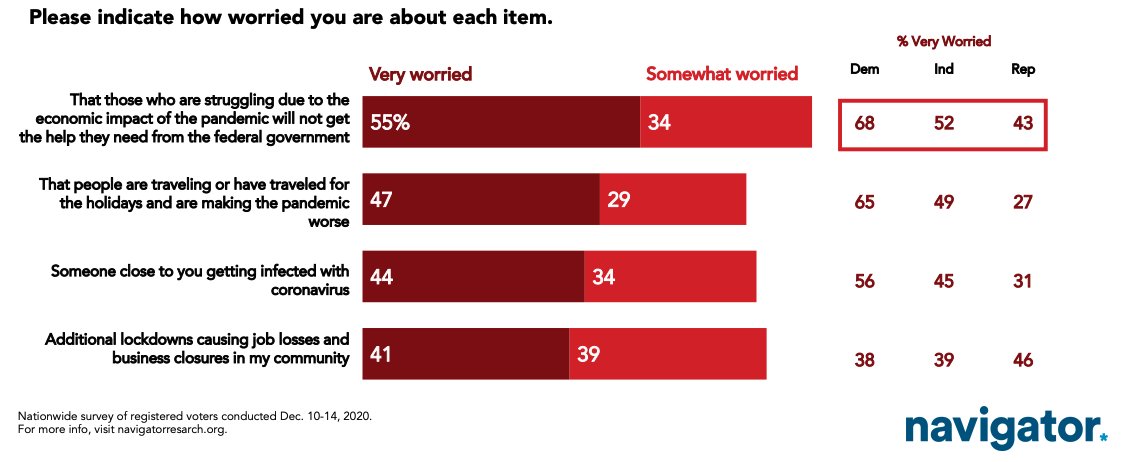
Two in Five Americans Have Had or Currently Have Student Loan Debt
Groups more likely to currently have or have had student loan debt include Americans 18-44 (50%) and Democrats (45%). Nearly half (45%) who currently have student loan debt owe $25,000 or more.
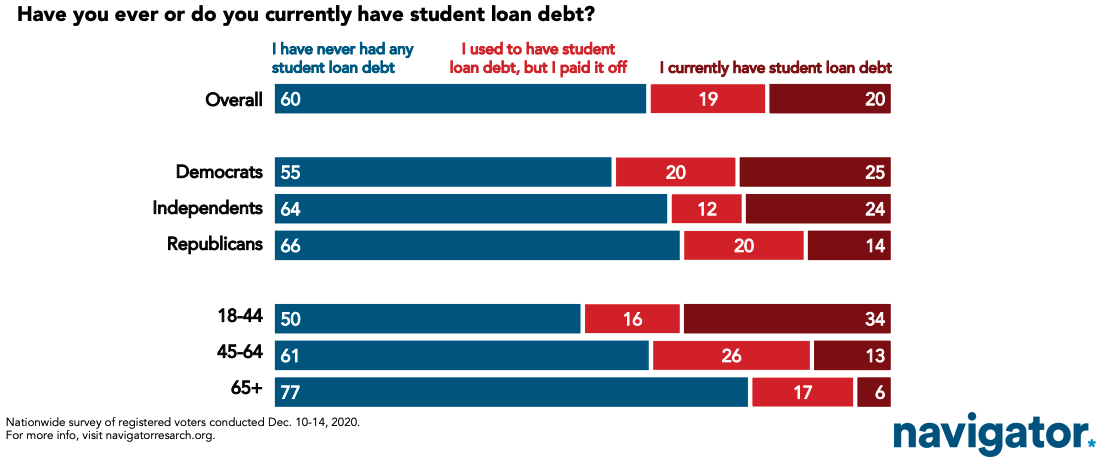
College Degrees Seen as Unaffordable, With Mixed Views on Whether or Not They Are Worth It
Nearly half of Americans say college degrees today are “very unaffordable,” with a plurality saying they are “not worth” the cost of taking out loans.
- Among those currently with debt, 62% say it is “very unaffordable” and 48% say it is “not worth it.”
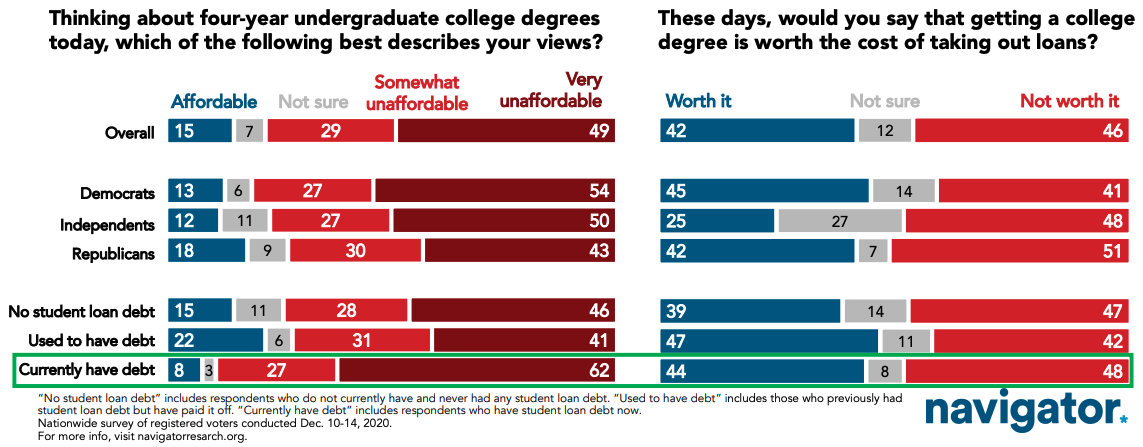
Two in Five Strongly Support Canceling Some Student Debt
A plurality of Americans “strongly support” canceling a portion of student loan borrowers’ debt, with a third saying the federal government should cancel all student loan debt and another third saying they should cancel some.
- Among those who currently have student loan debt, a resounding 75% “strongly support” canceling a portion of student loan debt, and among those who used to have debt who paid it off, 60% support overall.
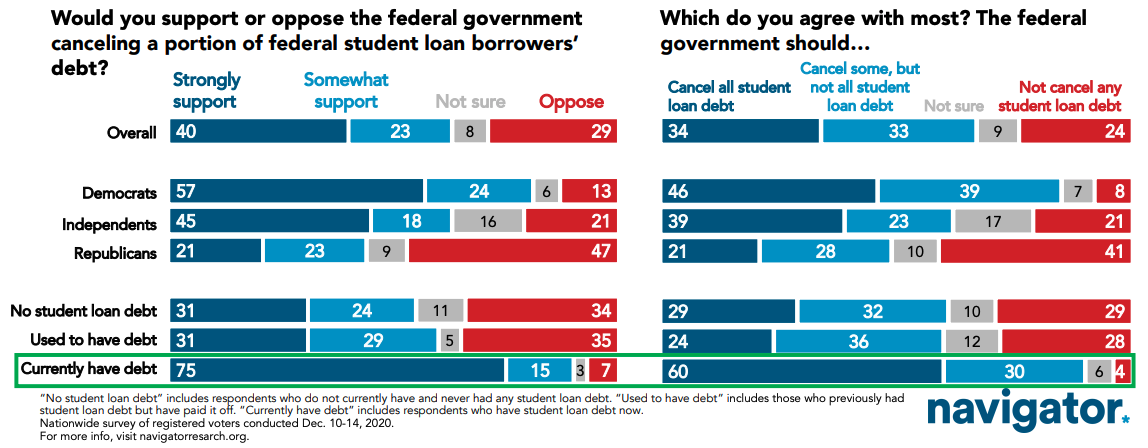
Economic Stimulus and Closing the Wealth Gap are the Most Convincing Reasons to Cancel Student Loan Debt
The top reasons Americans see for canceling student loan debt are that it is a form of stimulus amid an economic crisis and that canceling student loan debt would help lessen wealth inequality.
- Among those who support canceling some, not all debt, these are also the top reasons to cancel student debt.
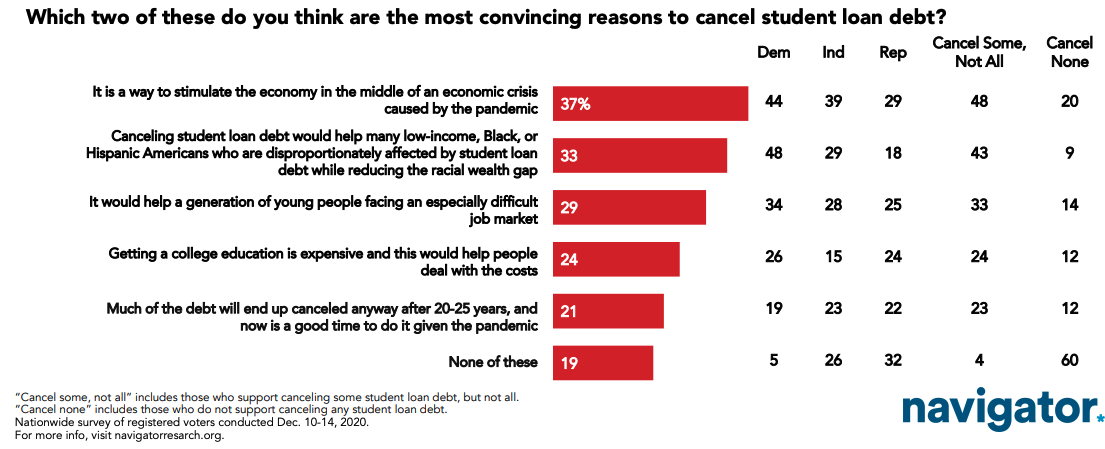
Top Concerns About Canceling Debt: Unfairness to Those Who Have Already Paid, Irresponsible Borrowing, National Debt
The most concerning items about canceling student debt include unfairness to those who have already paid off their student loan debt, that it would encourage irresponsible borrowing, and the national debt.
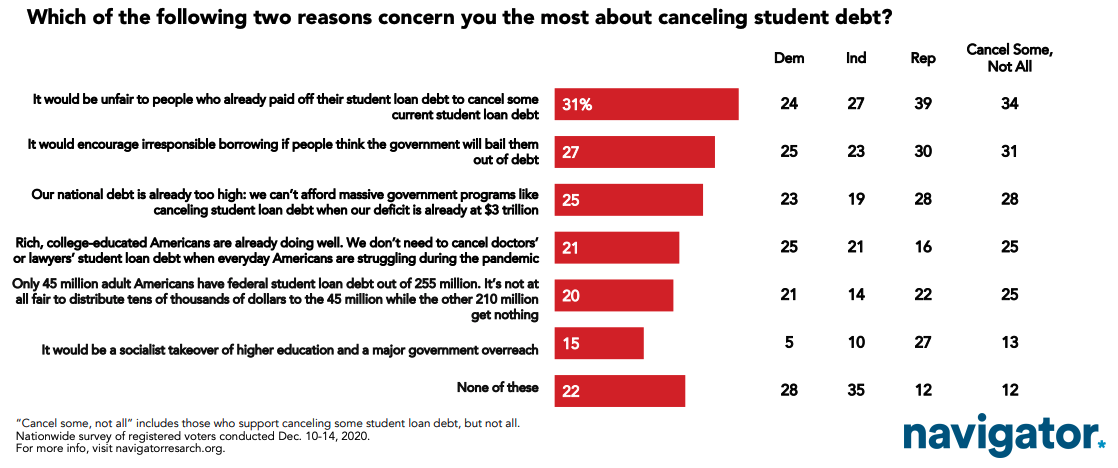
Most Want Big, Bold Changes in Washington, But “Compromise” Still Has Some Appeal
Since January 2020, an increasing majority say the “old normal” is not working and that bold political changes are needed, while just two in five say they prefer politics to get back to normal. At the same time, Americans are split between compromise to get things done and bold solutions to take on today’s challenges.
